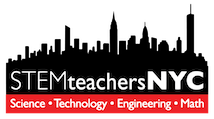Led by Mark Schober and Craig Buszka
During this one-week introduction to the principles of Modeling Instruction we’ll introduce you to several aspects of modeling such as facilitating student discourse, the modeling cycle, multiple representations in problem solving, and model-based curriculum design. We will explore these ideas by exploring content from several cross-cutting-concepts such as examining the role of energy, electricity, and light in biological and physical science contexts at middle and high school levels. You’ll be able to experiment with these teaching tools right away, but you’ll also have a sense of what you could gain by taking a full three-week workshop.
The workshop will engage you in selected “student-mode” activities embodying Modeling Instruction(TM). This will include one or two trips through the “modeling cycle” (paradigm experiment, development of model through whiteboarding and discussion, and model deployment). You will also participate in “teacher-mode” discussions of the pedagogy involved and of how you might try out elements of Modeling Instruction(TM) in your classroom. Examples will be chosen from physics, chemistry, and/or middle school science, depending upon the experience, background and interest of participants.
This one-week workshop provides a basic overview and a limited amount of experience with the elements of Modeling Instruction(TM); however, it is not a full Modeling Instruction(TM) Workshop satisfying the criteria for such workshops established by the American Modeling Teachers Association.

